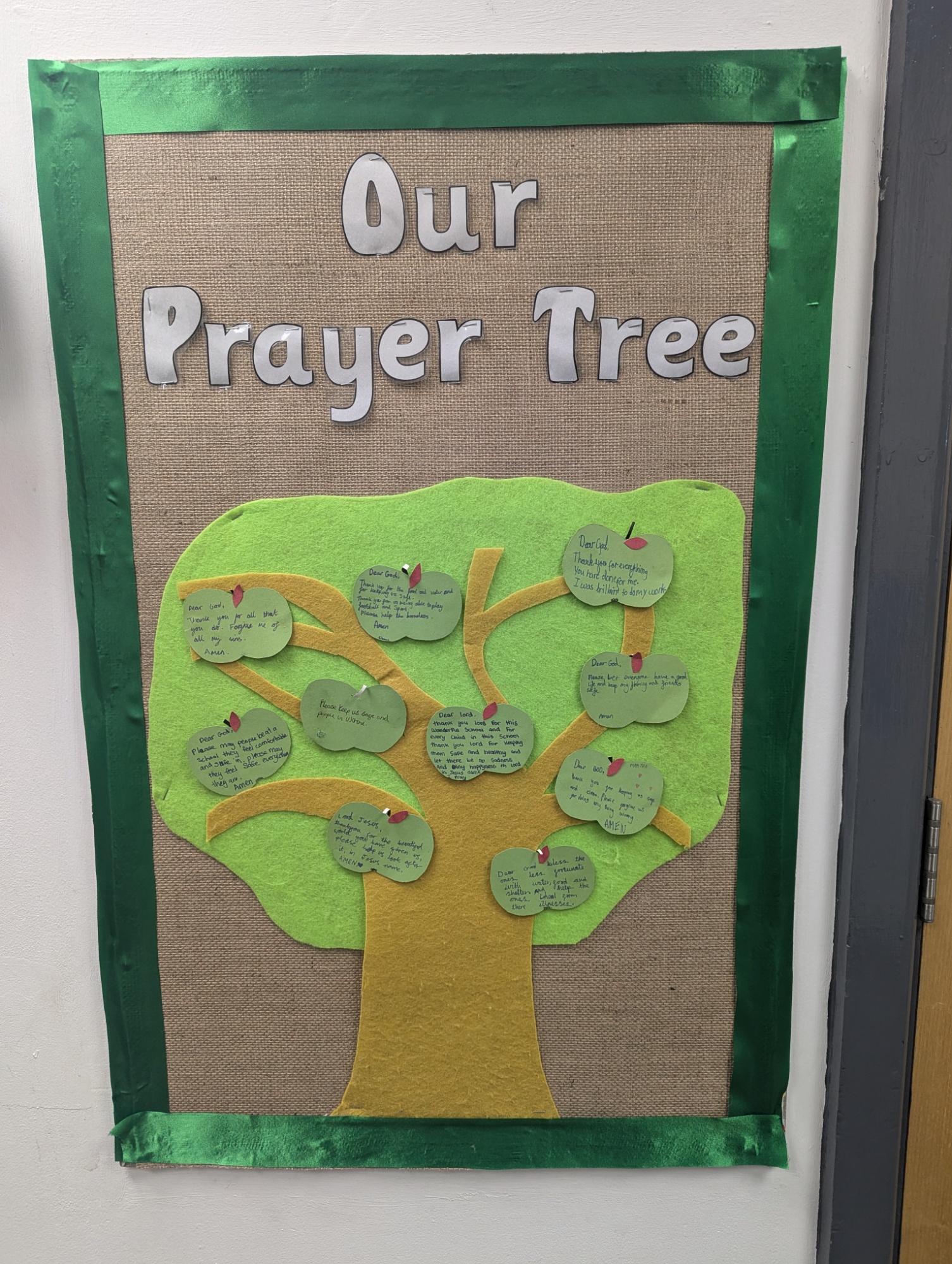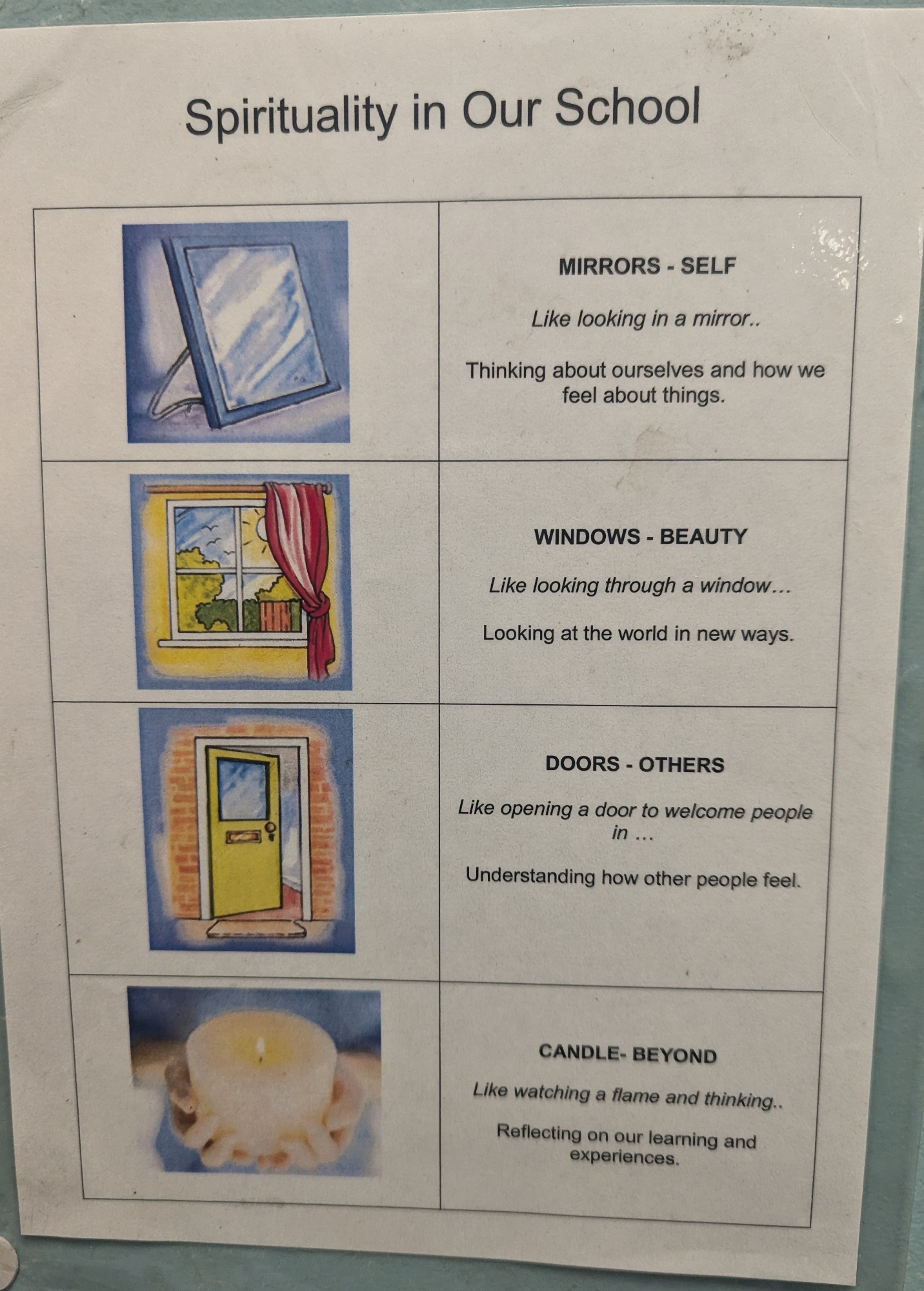Spirituality and Collective Worship
At St. James’, we pride ourselves in nurturing the spirituality of everyone in the school community. All children have an inborn spirituality. However, if spirituality is not nurtured, it can wither. Spirituality is not the same as religious faith but it is the bedrock on which faith is founded.
Worship
'Worship is the heartbeat of St. James’ and is a strong expression of the vision. It is fully inclusive and offers people a safe and invitational place to worship, reflect and pray' (SIAMS report, June 2022)
Worship is a key event for the St. James' community. We love to gather together to sing, sign, pray and listen to stories. Together, we reflect on how we can make the world a better place and be kind to one another.
With the church on our doorstep, we regularly go into church for celebration services or to learn. It is a space where all are welcome and we like to invite parents and families to attend worships throughout the year. Reverend Rachel is also a key member of our school community.

What Is Spirituality?
Spirituality is about relationships: relationships with ourselves, others, the world and with God. It is the sense of our engagement with the world, with ourselves and with others that is intangible but a deep part of us.
What does Spirituality do for our children?
To be in touch with your spiritual self means that you are self aware. Inevitably, spirituality requires reflection, introspection, questioning and engagement with ideas. If we can breed the children’s spiritual being then we can enhance their self esteem, we can improve their empathy and relationships, we can allow them to find their place in the world, to value others and themselves. Beyond academic learning, we can support children to be founded, strong, meaningful and engaging citizens of the world who can bring greater value into their own lives and those of others.
To help the children understand their developing spirituality we explain it using clear language and symbols. This explanation is displayed on a poster in every classroom and the symbols are used around school to show where evidence of developing spirituality can be seen.

10 Steps to Nurturing your Child’s Spirituality
- Read to your child every day. Stories feed the imagination, especially those such as fairy tales, which are about good and evil, courage and weakness in an imaginary place or a mythical time. Bible stories, particularly those from the Old Testament, are great stories in themselves about what it is to be human as well as creating a knowledge base for future faith development.
- Share times of quiet – whether listening to a story tape, going for a walk, lighting a candle for someone in church or simply watching the insects.
- Keep in touch with larger communities like the family, school and church. When we kneel to receive Holy Communion together we learn that we all matter equally in the presence of God.
- The best toys for encouraging the imagination are a large cardboard box or a blank piece of paper and a pencil.
- Play is important for both adults and children. It helps repair the broken and worn out pieces of life. The word recreation means creating again.
- Singing, especially with someone else, gives voice to joys and sorrows and forges relationships. This is why singing together at football matches and community sing songs bind people together.
- Teach your child to pray. One way is to make it a part of the bedtime ritual. A story followed by a quiet cuddle can be used to reflect on something good to thank God for. A problem can also be shared with God. It may be a time to say sorry to each other for an upset during the day. Or it may be the best treat of all – a time of comfortable silence ending with a kiss goodnight.
- Listen to your child and show that you recognise his or her feelings are important – in turn they will learn to listen to yours.
- Show that relationships matter and everyone’s dignity should be respected whatever their age and whoever they are. This is fundamental to Jesus’ teaching that we should love our neighbour as ourselves.
- When you make mistakes – and every parent does – reflect on it and admit your mistake or blunder to your child and say sorry. The very fact of recognising and owning up to our faults can be immensely healing as well as a valuable learning experience for all concerned. This healing is what the Bible calls redemption.
